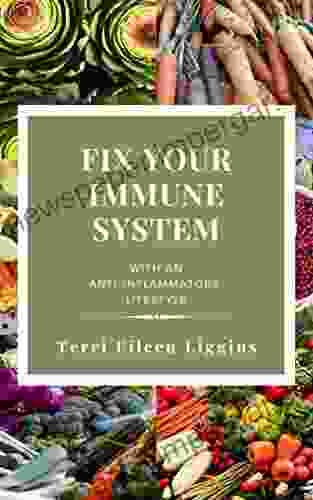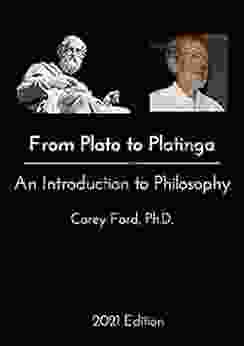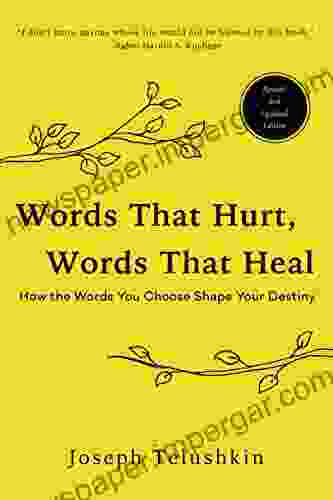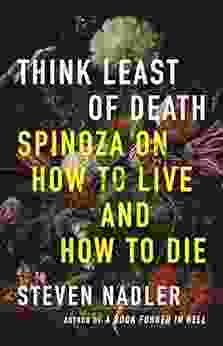Unraveling the Enigmatic Wisdom of Spinoza: A Journey to Find Meaning in Life and How to Die

In the tapestry of philosophical thought, Baruch Spinoza stands as an enigmatic figure, his teachings weaving together a profound understanding of the human condition and the nature of reality. His magnum opus, the Ethics, offers a comprehensive and transformative guide on how to live a meaningful and ethical life, even in the face of our inevitable mortality. This article delves into Spinoza's profound insights on life and death, exploring how his philosophy can help us find solace, purpose, and a deeper understanding of our existence.
Spinoza on the Nature of Life
Spinoza believed that life is an expression of God or Nature, an eternal and infinite substance. He rejected the Cartesian dualism of mind and body, arguing that they are interconnected modes of a single substance. This perspective challenges our conventional understanding of ourselves as separate entities and encourages us to see ourselves as part of a larger, interconnected whole.
4.5 out of 5
| Language | : | English |
| File size | : | 4993 KB |
| Text-to-Speech | : | Enabled |
| Screen Reader | : | Supported |
| Enhanced typesetting | : | Enabled |
| X-Ray | : | Enabled |
| Word Wise | : | Enabled |
| Print length | : | 244 pages |
Recognizing the divine essence within all things, Spinoza emphasizes the importance of cultivating a sense of wonder and gratitude towards life. He writes, "All things in Nature are working together in harmony, and it is my duty to adapt myself to the Free Download of Nature." By aligning ourselves with the natural Free Download, we can find purpose and meaning in our own lives, even amidst the challenges and uncertainties.
Navigating the Labyrinth of Emotions
While Spinoza acknowledged the power of emotions, he believed that they can often cloud our judgment and lead us astray. He advocated for a rational approach to managing our emotions, arguing that we should strive to understand their causes and effects rather than being controlled by them.
Spinoza's philosophy teaches us to cultivate emotional detachment, not in the sense of suppressing our feelings, but rather in gaining a deeper understanding of their nature and how they influence our thoughts and actions. By achieving emotional equanimity, we can make more informed decisions and respond to life's challenges with greater clarity and wisdom.
The Inevitability of Death and the Path to Enlightenment
Spinoza recognized the inevitability of death as an integral part of life's journey. He believed that dwelling on the fear of death can paralyze us and prevent us from fully embracing the present moment. Instead, he urges us to contemplate death as a natural and necessary aspect of our existence, one that can lead to profound insights and a deeper appreciation for life.
By contemplating our mortality, we are forced to confront our own finitude and the transient nature of all things. This realization can serve as a catalyst for personal growth and a shift in perspective. Spinoza writes, "The free man thinks of nothing less than of death; his wisdom is not a meditation upon death, but upon life."
Embracing Eternity and Finding Solace in the Face of Loss
Spinoza's philosophy invites us to transcend our limited understanding of time and mortality. He believed that our true essence, our "mind under the aspect of eternity," is not subject to the constraints of physical existence. By connecting with our eternal nature, we can find solace in the face of loss and adversity.
The realization of our eternal essence can also inspire us to live more authentic and meaningful lives. Knowing that our actions have eternal consequences can motivate us to strive for virtue and compassion. Spinoza writes, "He who loves God cannot be said to fear death, but rather, with tranquil mind, he waits for his own last hour."
Spinoza's Legacy and Its Relevance Today
Spinoza's philosophy continues to resonate with thinkers and seekers of truth today. His emphasis on reason, emotional equanimity, and the embrace of eternity offers a timeless guide for navigating the complexities of human existence. By embracing Spinoza's wisdom, we can find meaning and purpose in life, even in the face of death's inevitability.
Baruch Spinoza's teachings offer a profound and transformative path to finding meaning and purpose in life. By understanding the nature of life and death, cultivating emotional detachment, contemplating our mortality, and embracing our eternal essence, we can unlock the potential for a truly enlightened and fulfilling existence. In the words of Spinoza himself, "The highest good is the knowledge of the union which the mind has with the whole of Nature."
4.5 out of 5
| Language | : | English |
| File size | : | 4993 KB |
| Text-to-Speech | : | Enabled |
| Screen Reader | : | Supported |
| Enhanced typesetting | : | Enabled |
| X-Ray | : | Enabled |
| Word Wise | : | Enabled |
| Print length | : | 244 pages |
Do you want to contribute by writing guest posts on this blog?
Please contact us and send us a resume of previous articles that you have written.
 Book
Book Novel
Novel Page
Page Chapter
Chapter Text
Text Story
Story Genre
Genre Reader
Reader Library
Library Paperback
Paperback E-book
E-book Magazine
Magazine Newspaper
Newspaper Paragraph
Paragraph Sentence
Sentence Bookmark
Bookmark Shelf
Shelf Glossary
Glossary Bibliography
Bibliography Foreword
Foreword Preface
Preface Synopsis
Synopsis Annotation
Annotation Footnote
Footnote Manuscript
Manuscript Scroll
Scroll Codex
Codex Tome
Tome Bestseller
Bestseller Classics
Classics Library card
Library card Narrative
Narrative Biography
Biography Autobiography
Autobiography Memoir
Memoir Reference
Reference Encyclopedia
Encyclopedia John Nicholl
John Nicholl Jorma Styf
Jorma Styf John H Mallinson
John H Mallinson Joseph B Wujek
Joseph B Wujek Jonathan Barnett
Jonathan Barnett John Neral
John Neral John Stuart Mill
John Stuart Mill John G Francis
John G Francis John Gamble
John Gamble Joseph Neil
Joseph Neil John J Shea
John J Shea John Hodgman
John Hodgman Jonathan Weiner
Jonathan Weiner John H Lienhard
John H Lienhard John Rowan
John Rowan John Kiriakou
John Kiriakou John Corbett
John Corbett John Medina
John Medina John Soennichsen
John Soennichsen Jonathan Shapiro
Jonathan Shapiro
Light bulbAdvertise smarter! Our strategic ad space ensures maximum exposure. Reserve your spot today!

 Mikhail BulgakovPunch or The London Charivari Volume 153, November 28, 1917: A Timeless and...
Mikhail BulgakovPunch or The London Charivari Volume 153, November 28, 1917: A Timeless and...
 Charles BukowskiFix Your Immune System: The Ultimate Guide to Boosting Your Immunity and...
Charles BukowskiFix Your Immune System: The Ultimate Guide to Boosting Your Immunity and... Rod WardFollow ·3.3k
Rod WardFollow ·3.3k Brent FosterFollow ·12.1k
Brent FosterFollow ·12.1k Demetrius CarterFollow ·8k
Demetrius CarterFollow ·8k Langston HughesFollow ·9.5k
Langston HughesFollow ·9.5k Isaac BellFollow ·7.9k
Isaac BellFollow ·7.9k Colt SimmonsFollow ·15.3k
Colt SimmonsFollow ·15.3k Herbert CoxFollow ·8.7k
Herbert CoxFollow ·8.7k Theodore MitchellFollow ·12.8k
Theodore MitchellFollow ·12.8k

 Jake Powell
Jake PowellThe Constitution of the State of Colorado: A Legacy of...
Since its adoption in 1876, the...

 Devin Ross
Devin RossFrom Plato to Plantinga: A Journey Through the History of...
Philosophy is the study of...

 Robin Powell
Robin PowellWords That Hurt, Words That Heal: The Power of Language...
Words are powerful. They can...

 T.S. Eliot
T.S. EliotTantalize Your Taste Buds with Over 90 Low-Carb Ethnic...
Indulge in a Culinary Adventure with "Over...
4.5 out of 5
| Language | : | English |
| File size | : | 4993 KB |
| Text-to-Speech | : | Enabled |
| Screen Reader | : | Supported |
| Enhanced typesetting | : | Enabled |
| X-Ray | : | Enabled |
| Word Wise | : | Enabled |
| Print length | : | 244 pages |












